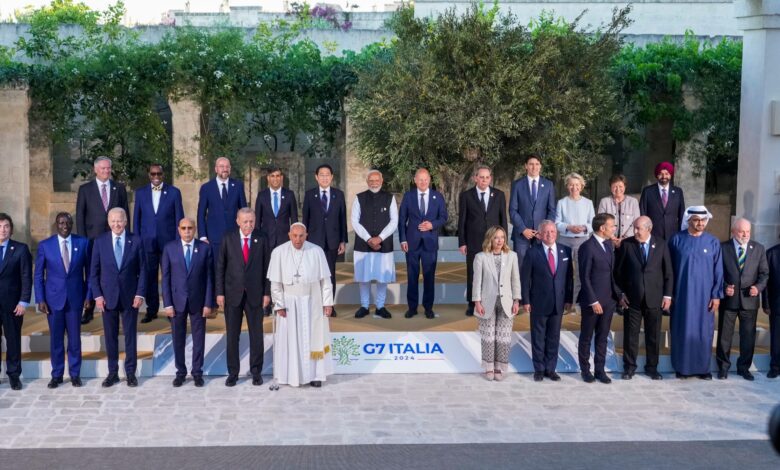G7 AI Hirosawa: The Role of Advanced AI in Global Leadership – An Insight by Nikkei Asia

G7 AI Hirosawa
(G7 AI Hirosawa)As the world continues to grapple with technological advancements, the rise of artificial intelligence (AI) has become a central focus for global leaders. Among the forefront of these discussions is the G7 summit, where AI technologies, such as those developed by Hirosawa, are shaping the conversation. In this article, we’ll delve deep into the impact of AI, its role in global governance, and how Nikkei Asia has highlighted the significance of these advancements in its coverage.
The G7 Summit: An Overview
The Group of Seven (G7) consists of the world’s largest and most advanced economies—Canada, France, Germany, Italy, Japan, the United Kingdom, and the United States. Traditionally, the G7 has focused on economic policies, international security, and global governance. However, in recent years, the summit has increasingly turned its attention to technology, specifically artificial intelligence.
As AI continues to influence global industries—from healthcare to finance, and from transportation to education—G7 leaders are recognizing the need for collaboration on AI policies. This collaboration ensures that AI development remains ethical, equitable, and beneficial for all. The discussions around AI at the G7 summit are not just technical but involve considerations of economic growth, job creation, ethical standards, and geopolitical influence.
Hirosawa’s Contribution to AI: A Game-Changer
In the realm of AI, Hirosawa has become a leading figure, recognized for his groundbreaking contributions to the field. His AI technologies are renowned for their sophistication and wide-ranging applications, from autonomous systems to natural language processing. Hirosawa’s work has significantly impacted various sectors, particularly in Japan, where AI is being used to address challenges such as an aging population and labor shortages.
At the G7 summit, Hirosawa’s innovations were a focal point of discussions on how AI can be harnessed to address global issues. His AI models have been implemented in various industries to optimize efficiency, reduce costs, and create new opportunities. For example, in healthcare, Hirosawa’s AI has been used to predict patient outcomes, enabling personalized treatment plans. In manufacturing, his technologies have streamlined production processes, increasing output while minimizing waste.
AI and the Global Economy: Insights from Nikkei Asia
Nikkei Asia, one of the leading business and financial publications in the region, has been closely following the developments around AI, particularly in the context of the G7 summit. The publication has highlighted the economic potential of AI, noting that it could contribute trillions of dollars to the global economy by 2030.
Nikkei Asia’s coverage emphasizes that AI is not just a tool for economic growth but also a catalyst for innovation. Companies leveraging AI are better positioned to lead in their respective industries, as AI enables faster decision-making, improved customer experiences, and more efficient operations. Moreover, AI is helping to create new industries altogether, such as autonomous vehicles and smart cities.
In its analysis, Nikkei Asia also explores the challenges posed by AI, including concerns about job displacement, privacy, and security. While AI offers numerous benefits, it also presents risks that need to be managed carefully. The publication calls for governments and businesses to work together to create frameworks that ensure AI development is aligned with societal values.
The Ethical Implications of AI: A Key Discussion at G7
One of the most critical discussions at the G7 summit centered around the ethical implications of AI. As AI systems become more autonomous, questions about accountability, transparency, and fairness have come to the forefront. The summit underscored the need for global standards that ensure AI technologies are developed and deployed responsibly.
Hirosawa has been a vocal advocate for ethical AI, emphasizing that AI should be designed to augment human capabilities rather than replace them. He has called for increased collaboration between AI developers, policymakers, and ethicists to create systems that are both innovative and ethical. His stance resonates with the broader goals of the G7, which seeks to promote AI that benefits humanity as a whol
you may also read fastblogstime.




